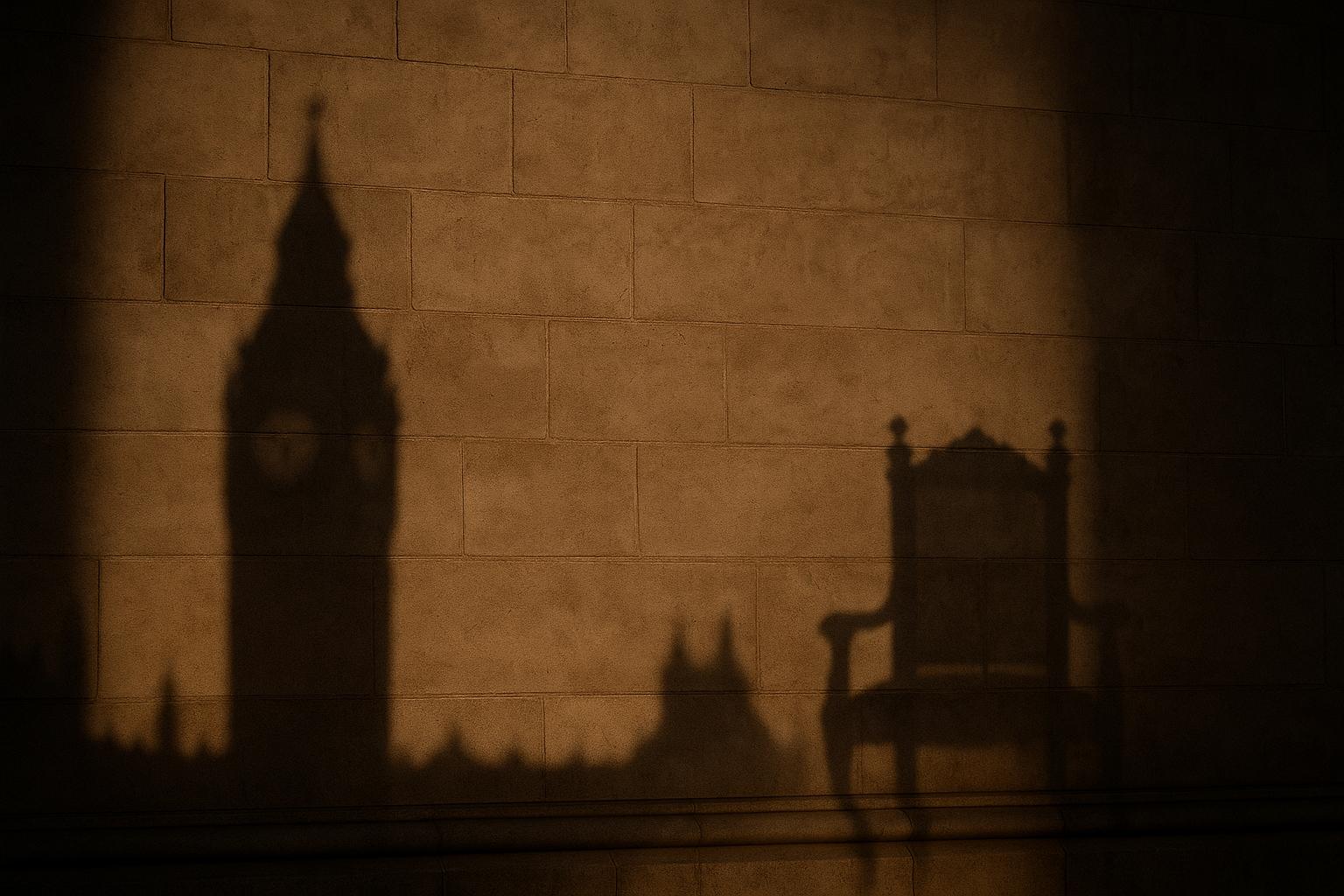Almost daily in Westminster, a fresh minister is hauled from relative obscurity to face urgent questions in the Commons over the increasingly fraught China 'spies' scandal. The latest casualty was Solicitor General Ellie Reeves, who was tasked with defending the government’s handling of the failed prosecution of two men accused of spying for China. Ms Reeves, representing the Attorney General’s Office for Lord Hermer who sits in the House of Lords and cannot answer in the Commons, displayed visible irritation and frustration as Conservative MPs fired relentless inquiries at her during a mid-morning session. Her responses were terse, often evasive, marked by a defiant pout, and characterised by frequent repetitions of a single line—that Lord Hermer would appear before a parliamentary committee the following week to answer questions himself. Her performance was widely viewed as weak and unconvincing by many observers and parliamentarians alike. Tory MPs accused her of dodging the issues, while only one Labour MP offered tentative support amid the sparse attendance from her party, signalling internal discomfort over the scandal and its implications for ministers’ reputations.
The core controversy revolves around why the prosecution of Christopher Cash and Christopher Berry, charged under the Official Secrets Act, was abruptly dropped. The Associated Press reported that the case collapsed largely because the UK government had not formally designated China a national security threat at the relevant time, meaning prosecutors lacked the necessary government testimony to proceed. This lack of an official threat designation has caused political uproar, with critics alleging that maintaining diplomatic relations with Beijing was placed above the UK’s national security interests. Prime Minister Keir Starmer defended his administration by pointing out that the offences in question dated back to the previous Conservative government’s tenure, which had not made the threat designation either. Meanwhile, MI5 continues to publicly rank China among the UK’s top espionage threats. The Chinese Embassy dismissed the spy allegations as slander, adding an international diplomatic dimension to the controversy. Calls for greater transparency and a thorough investigation into potential political interference have gained momentum, underscoring the case’s wider implications for national security policy and public trust.
In the Commons on 23 October 2025, Ms Reeves sought to reaffirm the constitutional principle that prosecutions must be free from political influence. According to official parliamentary records, she stressed that prosecutors, not politicians, decide which cases to prosecute and when to discontinue them. She clarified that the Attorney General had given consent to proceed with the charges on 3 April 2024, but no law officer intervened in the case thereafter. Both the Director of Public Prosecutions and senior Treasury counsel reportedly confirmed that the decision to offer no evidence in court was taken independently, without political pressure. Reeves also expressed concern that ongoing speculation and disinformation about the case detracted from the urgent task of strengthening cross-party cooperation and law enforcement efforts to counter espionage and interference by China.
Supporting these assertions, government officials and statements published by outlets such as the Evening Standard and Inkl reiterated that the Attorney General was not involved in the case following the charge. They emphasised the independence of the Crown Prosecution Service (CPS) and dismissed accusations of political meddling as unfounded. Nonetheless, the case continues to fuel criticism and suspicion, with some opposition MPs and commentators questioning whether political considerations influenced prosecutorial decisions, particularly given the reported close ties between Lord Hermer and Prime Minister Starmer.
Amid parliamentary scrutiny, several select committees—namely the Home Affairs Committee, Justice Committee, Foreign Affairs Committee, Joint Committee on the National Security Strategy, along with the Intelligence and Security Committee—have convened to examine the circumstances behind the collapsed prosecution. Their constructive meetings with the Director of Public Prosecutions in October 2025 suggest a serious intent to investigate further and determine any procedural or political failures. Observers anticipate more detailed findings and potential recommendations for safeguarding the integrity of future espionage cases.
The scandal’s toll extends beyond Ms Reeves. Other ministers such as Dan Jarvis, the security minister, appear visibly weary and less forthcoming, having once been regarded as straightforward and trusted. Newly appointed Cabinet Office minister Chris Ward also stumbled in his parliamentary debut due to the case’s fallout, raising questions about the political costs borne by relatively junior government figures caught in the crossfire. As the crisis deepens, party tensions escalate, and questions about the government’s transparency and commitment to national security become increasingly acute, Starmer’s political stock is perceived to be in decline, amid widespread accusations that protecting privileged insiders has overridden justice and proper accountability.
The government’s effort to downplay involvement contrasts with the growing calls for clarity and comprehensive inquiry, particularly as the CPS’s handling of evidence and prosecutorial decisions come under intense scrutiny. Sky News has reported clashes between senior MPs and CPS lawyers, highlighting that despite the government releasing key evidence documents, significant questions remain unanswered, sustaining political and public pressure for further investigation.
The China 'spies' case, therefore, remains a contentious and evolving issue, pitting national security concerns against diplomatic strategy, legal independence against political responsibility, and testing the government’s ability to maintain trust amid allegations of obfuscation and mismanagement.
📌 Reference Map:
- Paragraph 1 – [1] (Daily Mail)
- Paragraph 2 – [2] (Associated Press)
- Paragraph 3 – [3] (Hansard)
- Paragraph 4 – [4] (Evening Standard), [6] (Inkl)
- Paragraph 5 – [5] (UK Parliament Foreign Affairs Committee)
- Paragraph 6 – [1] (Daily Mail)
- Paragraph 7 – [7] (Sky News)
Source: Noah Wire Services
